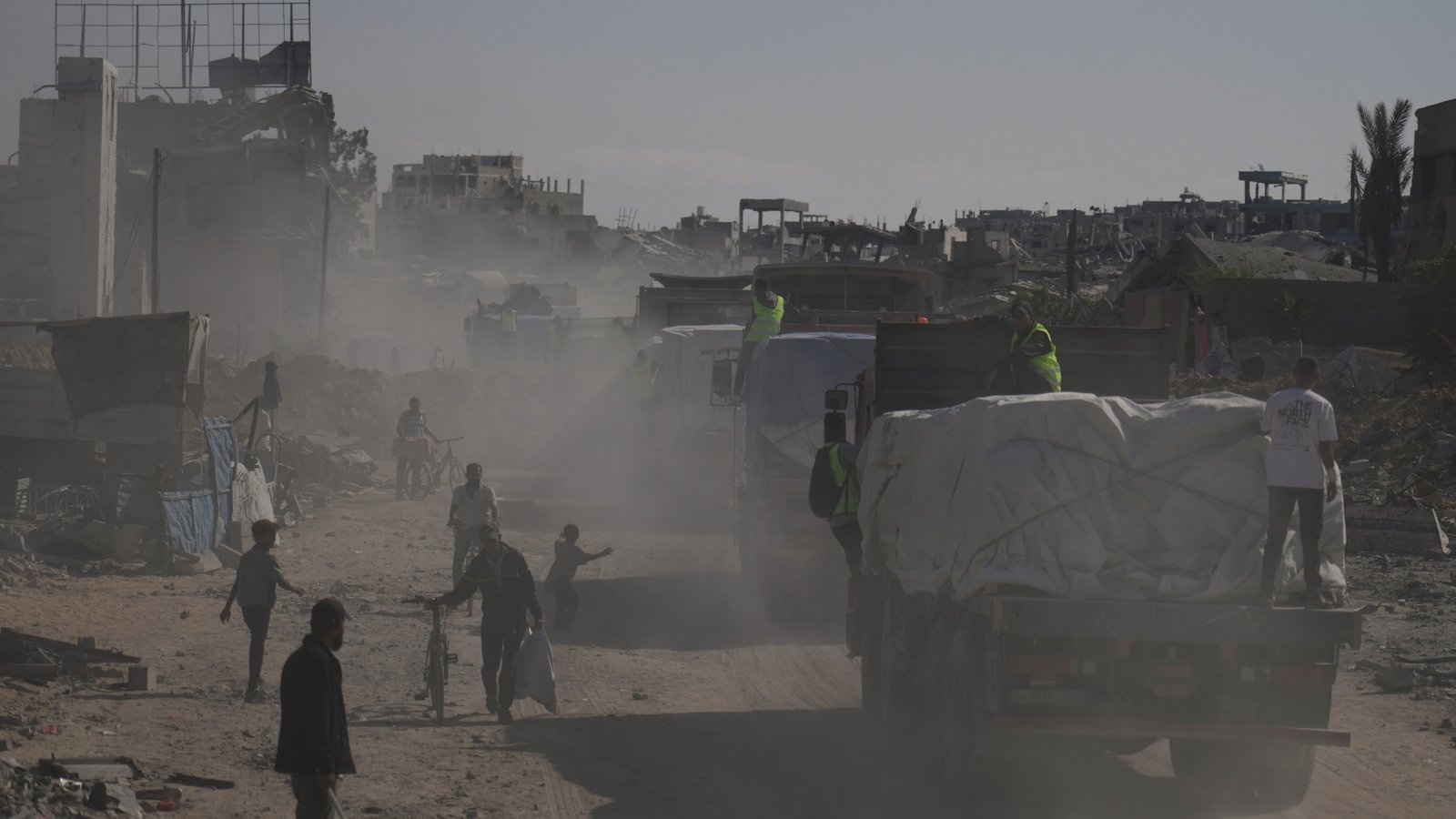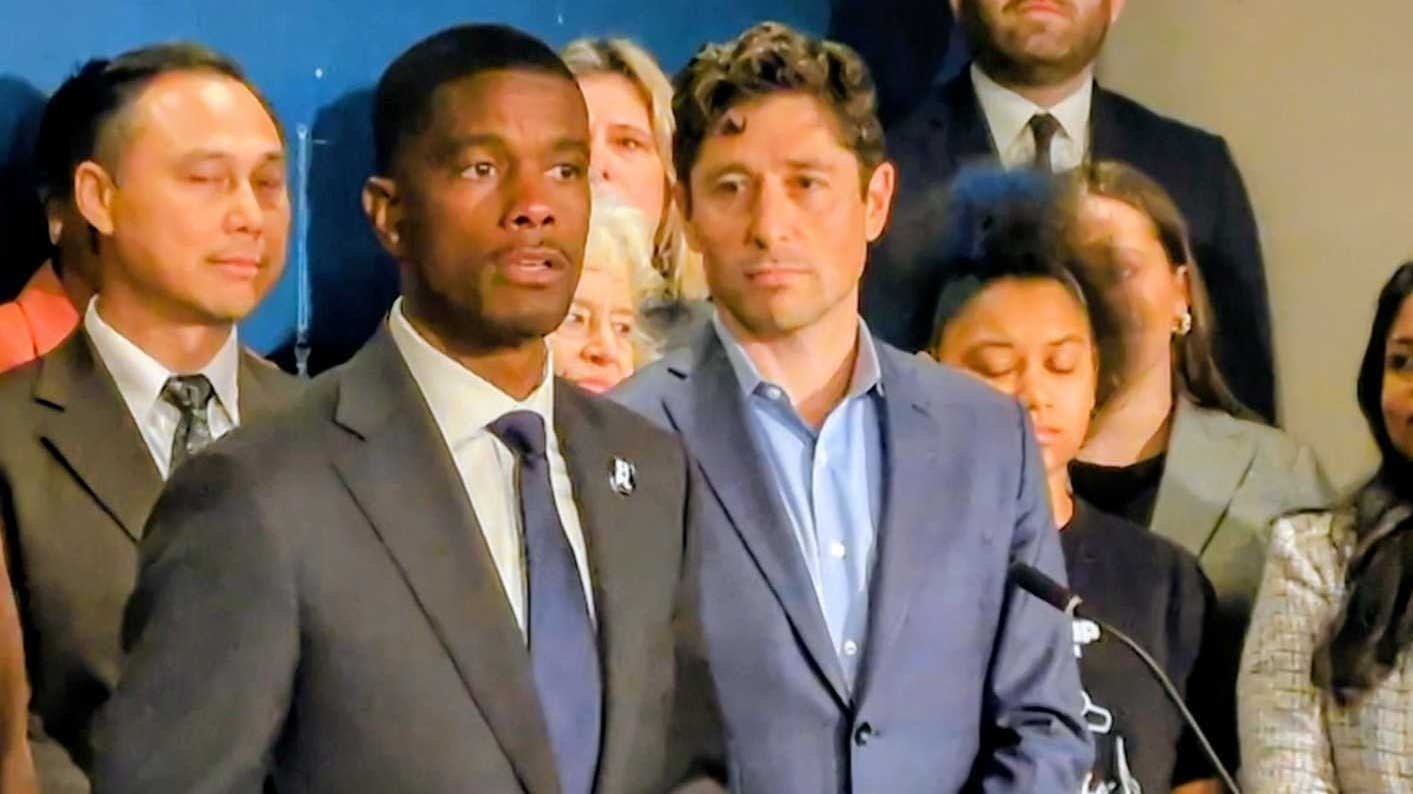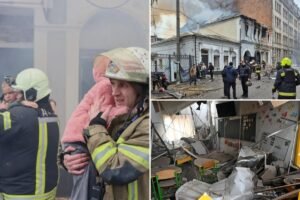
Israel is taking steps to close international relief organizations in Gaza and the West Bank

Now that Israel has prevented the United Nations Relief and Works Agency for Palestine Refugees (UNRWA) from sending aid and staff to Gaza, Israel is taking unprecedented steps to deregister key non-governmental relief organizations for ideological reasons, according to a number of officials in Israel. Humanitarian organizations.
They say the new rules threaten the ability of some of the largest international nongovernmental organizations — known as INGOs — to send aid or staff to both Gaza and the Israeli-occupied West Bank.
"INGOs are in limbo – most who applied were either not accepted or rejected," An official with a relief organization familiar with the situation said of the application process required for nongovernmental relief organizations working in Gaza and the West Bank. The official spoke on condition that NPR not name the employer and not use their names because they were not authorized to speak publicly.
A ceasefire agreement in the Gaza war, reached this month brokered by President Trump, requires Israel to increase aid to Gaza, as food security experts monitor Famine declared In parts of the region. But Israel continues to impose strict restrictions on the crossings open for aid shipments and on who can send aid through them. Of seven Israeli border crossings with Gaza, only two are currently open. Among the open ports, the United Nations and NGOs say many requests to enter Gaza are routinely rejected, without explanation.
The Israeli army has claimed, without providing any evidence, that the restrictions it imposes on its aid are necessary for security reasons.
This fall, Israel began asking all international relief organizations to re-register Under new standardsincluding the approval of a committee that includes representatives of the Israeli Ministry of Diaspora Affairs and Combating Anti-Semitism.

Reasons for delisting help groups include support "Terrorist groups and activities in accordance with Israeli law" and "incitement to racism," According to COGAT, the arm of the Israeli military that is part of the NGO approval process. Aid organizations say this logic appears to be used to refer to a wide range of comments that the Israeli government classifies as anti-Semitic. In the past, Israel has accused some relief organizations and medical service providers of being terrorist organizations.
Israel also required organizations to provide staff details for all local and international staff, a measure rejected by most major aid organizations as it could put staff at risk.
The Norwegian Refugee Council, registered in Gaza since 2009, is one of the main relief organizations unable to send supplies or staff while his application is being processed.
"We quickly realized that the intention behind this process was not to facilitate the re-registration of international humanitarian NGOs, but rather to find a way to re-register us and remove our ability to operate." says Ivan Karakashian, communications director at the Norwegian Refugee Council in Jerusalem.
He says there are no clear guidelines on what delegitimizing Israel involves. Any unregistered organization must cease operations in both Gaza and the Israeli-occupied West Bank within 60 days, according to aid officials familiar with the criteria.
The Israeli military arm responsible for borders and coordination with international NGO operations did not respond to NPR’s requests for comment on the reasons for canceling registration or delaying the registration of some organizations.
Many of those aid organizations waiting to re-register have hundreds of trucks waiting for months in Egypt and Jordan heading to Gaza.
Humanitarian officials said that at least one major US-based NGO had already had its registration revoked and was now in the appeals process. The organization in question declined to discuss the issue with NPR.
Another US-based relief organization, Mercy Corps, said that after the ceasefire agreement, it submitted a request to send aid, but the Israeli authorities rejected the request because the organization was in the process of re-registering.
Humanitarian officials said Israel approved 12 non-governmental organizations that do not coordinate within traditional UN-led structures and are either ideologically motivated, have little experience in humanitarian aid, or both. They include one US aid group that has partnered with the controversial Gaza Humanitarian Foundation — a military aid response in which almost all other aid groups have refused to participate.
The Office for the Coordination of Government Activities in the Territories did not respond to a request for comment on the new aid organizations that had been registered.
Meanwhile, Israel continues to prevent the United Nations agency providing aid to Palestinian refugees, known as UNRWA, from sending aid or personnel to Gaza. Israel accused UNRWA, without evidence, of employing hundreds of Hamas members, including some involved in the October 7, 2023 attack in Israel. Since the beginning of the war in Gaza, it has sought to replace the United Nations aid system that has been providing humanitarian aid there for decades.
UNRWA, with 12,000 local staff, was the largest humanitarian organization in Gaza, running shelters, mobile medical clinics, water and sanitation projects and schools.
"The warehouses in Jordan and Egypt are full of food that could feed the entire population of Gaza for three months and we have to get that." says Tamara Al-Rifai, Director of External Relations at UNRWA. Supplies also include medicine, tents, blankets and hygiene products.
Israeli air strikes caused damage or destruction More than 90 percent of homes In Gaza and most of the civilian infrastructure, according to UN figures.
The United States, which was the largest donor to UNRWA, stopped its funding last year, which, Al-Rifai says, led to a loss of about a quarter of UNRWA’s total income. Al-Rifai says that while European and other countries have increased their contributions, this does not close the funding gap. The European Union’s chief humanitarian aid official said after the Israeli accusations against UNRWA He saw no evidence from Israel Support them.
Al-Rifai says that UNRWA was trying to start discussions with the United States through other countries about renewing funding.
"We did not hold direct talks, but we passed messages through other governments close to Gaza and close to the United States" She says.
Aya El-Batrawi contributed reporting from Dubai, United Arab Emirates.
Copyright 2025, NPR













Post Comment